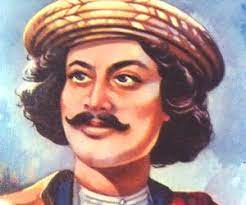 “Truth and Virtue do not necessarily belong to wealth and Power and distinctions of big mansions”
“Truth and Virtue do not necessarily belong to wealth and Power and distinctions of big mansions”
Raja Ram Mohan Roy, a name proudly known as maker of Modern India, has contributed immensely to the freedom struggle of India and bringing social & educational reforms in India. The title of Raja was bestowed upon him by the Mughal Emperor Akbar II. On his death anniversary today, i.e. 27th September, let’s delve deeper into his works for bringing path-breaking changes that helped break the shackles of some of the inhuman practices in India:
Born in a Brahmin family in Hoogly district of Bengal to the Sanskrit scholar Ramkanto Roy, he learnt Persian and Arabic in a madrasa. Interestingly, he also knew a lot of foreign languages, including English, Greek, Hebrew, French, and Latin. His varied education laid down the foundation for tolerance and respect towards other religions. He worked as a private clerk to Thomas Woodroffe, a registrar and later for John Digby, a collector of East India company. During this time, he did a lot of research on political and social reforms and published them. He left his employment to dedicate his time to work towards bringing social and economic renaissance.
“The superstitious practices which deform the Hindu religion have nothing to do with the pure spirit of its dictates.”
He founded the Brahmo Samaj, which worked for bringing social reforms such as removal of caste system and bringing an end to some social evils & customs. He painstakingly took efforts to publish Bengali versions of Upanishads and Vedas for people to be aware of the original version of the texts. Its focus was on reading of scriptures, prayers, and meditation instead of idol worship and sacrifices. One of his biggest accomplishments was the abolition of Sati, a practice that was extremely inhuman against Hindu women. In fact, he even travelled to England in 1930 to ensure that the Act against banning Sati would not be nullified. Besides, he worked towards abolition of polygamy, child marriage, and the right to education and inherit property for women.
In 1830, he spent two years in England as an ambassador of the Mughal empire to look after the needs of India. Unfortunately, in 1833, he lost his life to meningitis and was interred in Bristol. The nation will remain forever indebted to tireless contribution for introducing modern times in India.
“I have now given up all worldly avocations, and am engaged in religious culture and in the investigation of truth”
Birth Score – 4/5
Pride Score – 5/5
A super-impressive 9/10 Notable Brahmin Score.